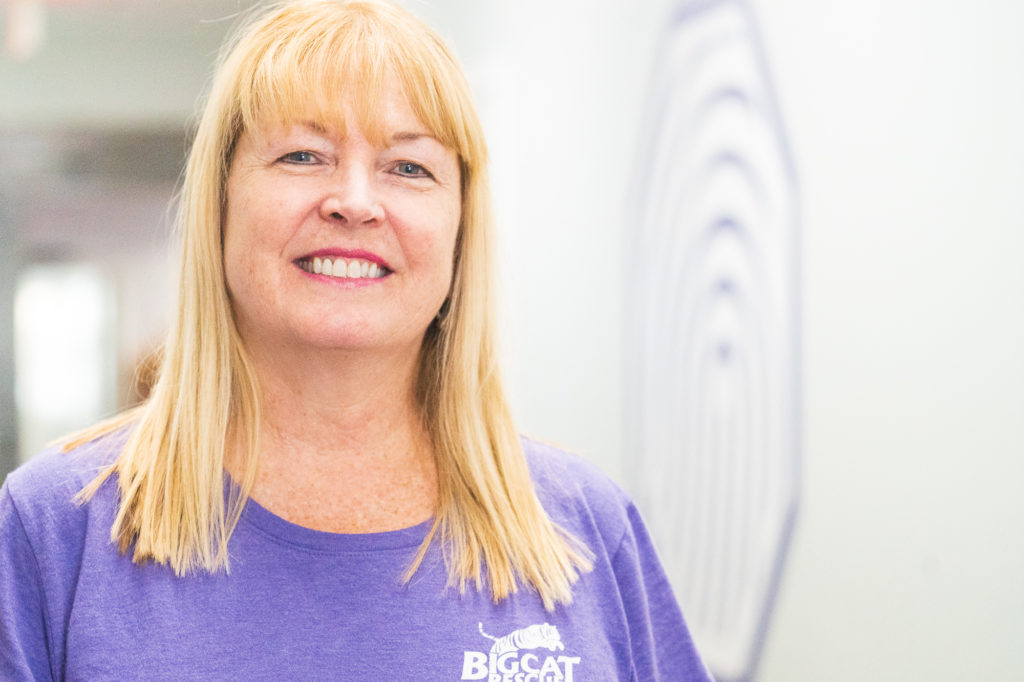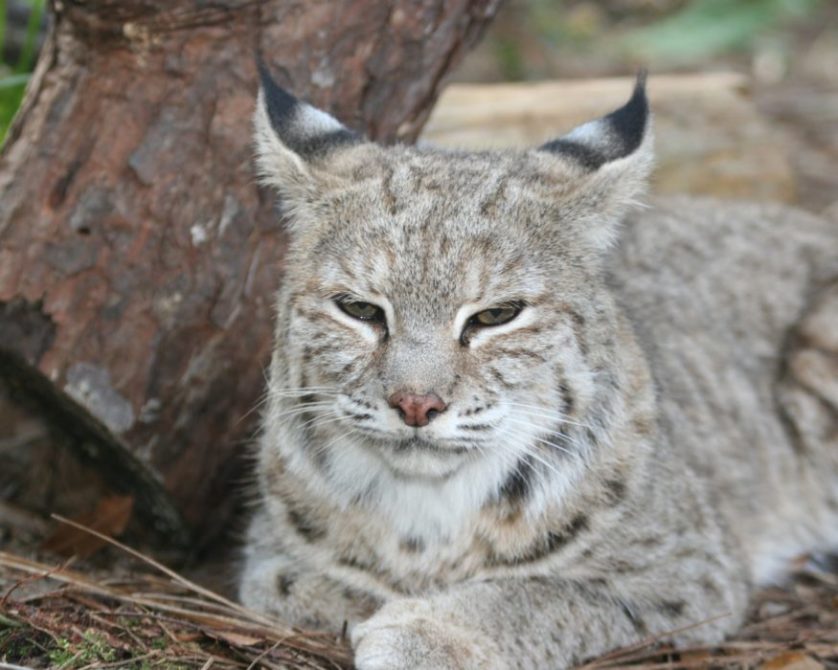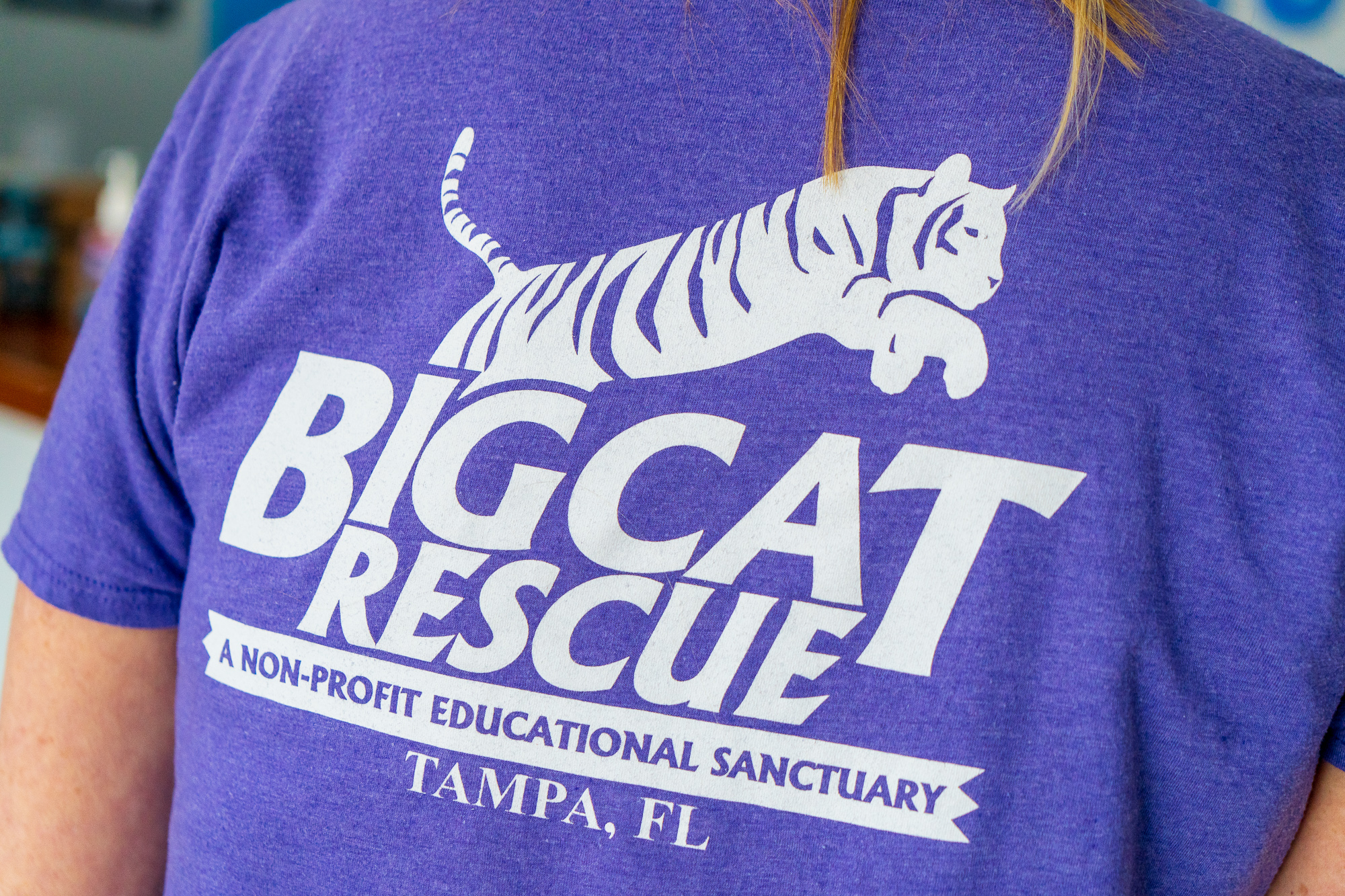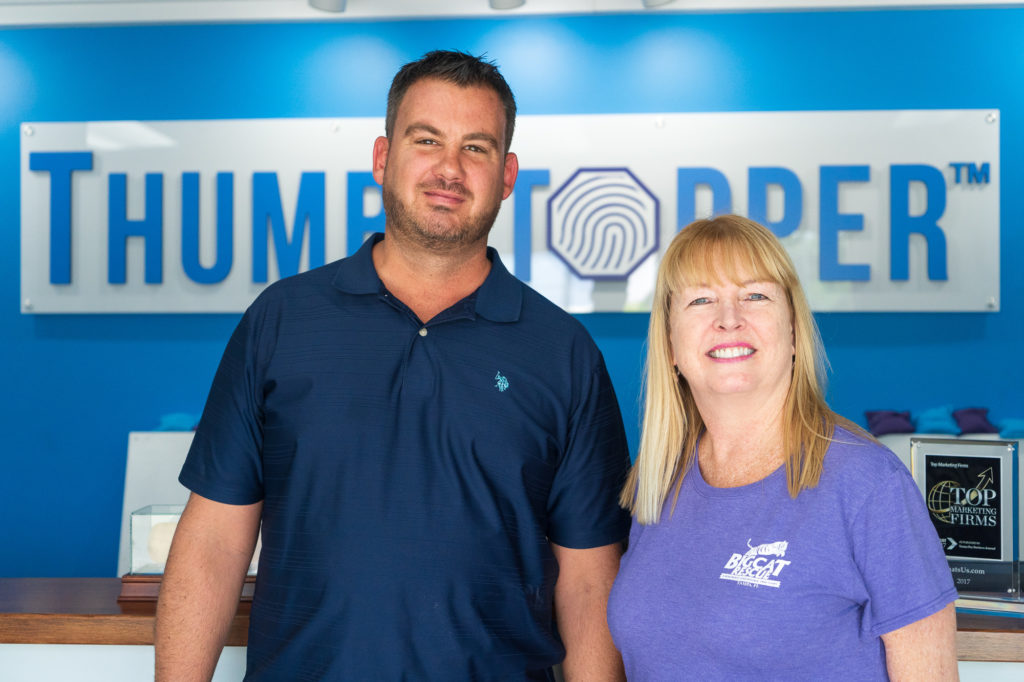
Big Cat Rescue has long been a haven for abused exotic cats in captivity. The sanctuary, located in Citrus Park, Florida, houses and protects abused and abandoned cats.
In this episode of Brown on Brand, Matthew Brown talks with Susan Bass, Director of Public Relations about the sanctuary’s efforts to get legislation passed banning private ownership of big cats nationwide.

Big Cat Rescue started in 1992 when Carole Baskin attended an animal auction in search of llamas to greenbelt 45 acres of land. While there, a six-month-old bobcat was being sold at auction, much to the interest of a buyer intent on killing and stuffing it.
Terrified, Baskin outbid the man and received the bobcat, which she named Windsong. Her experience purchasing Windsong at auciton influenced her decision to start Big Cat Rescue on November 4, 1992.

For 26 years, Baskin, along with her husband, Howard, has taken in 60 different exotic cats within the 69-acre enclosure. Now, the animal sanctuary has new goals in mind: preventing private owners from keeping big cats as pets.
Since February, Big Cat Rescue has lobbied to Congress. The animal sanctuary has allied with Mike Quigley (D-Ill.) and Brian Fitzpatrick (R-Pa.), cosponsors of the Big Cat Public Safety Act (HR 1380), which seeks to further the conservation and protection of big cats in the country.
The proposed bill would prevent private owners from owning big cats and ban cub petting nationwide, amending the Lacey Act Amendments of 1981 that prohibited trade of any animals, plants and wildlife that are illegal in state and federal law. The bill was previously introduced in 2017 and was stalled in Congress.
117 House members have cosponsored the bill, which has since moved to the House natural resources subcommittee for further discussion. Bass said the bill would help stop the incentive that breeders receive when they try to profit from cub breeding.
“What the bill is going to specify is that the public can no longer handle cubs,†Bass said. “There has to be a 15-foot barrier between the public and a tiger cub, for example.â€
Despite the Lacey Act’s amendments, big cat ownership is still legal in some states. Roadside zoos, circuses and other exhibitors can also purchase a USDA exhibitor license through a federal loophole.
Bass said that private ownership of big cat cubs can be lucrative for breeders but can become an expensive and dangerous investment once the cats turn 12- to 13-weeks-old.
“What people don’t realize is that once [big cats] are 12- or 13-weeks-old, they’re way too dangerous to sit on someone’s lap – they can actually scratch or bite off a finger at that point,†Bass said. “They’re bred for a teeny tiny little window of opportunity for the breeder, and in captivity, they can live well into their 20s.â€
Under the bill, zoos and other exhibitors who own big cats can choose to keep or relinquish the cats to an accredited sanctuary such as Big Cat Resuce. For now, Big Cat Rescue requires privates owners who send big cats to the animal sanctuary to sign a legally binding contract that states the owner will never own another cat.
“We don’t want to just be the dumping ground for someone who has a lion that’s older now and sick and needs a lot of vet care, then turn around and go to buy another car,†Bass said.

While Big Cat Rescue continues to lobby for support of H.R. 1380, the animal sanctuary has taken steps at home to free some of its big cats into the wild.
Federal law prohibits the release of big cats in the United States, but Big Cat Rescue is able to rehabilitate native Florida bobcats that have been found within the state.
Sanctuaries must be licensed to rehabilitate certain big cats, but Bass said the animal sanctuary's rehabilitation process provides bobcats with the skills necessary to be released into at least 40 acres of natural habitat.
The 40-plus acres of habitat contrasts the requirements of the Florida Wildlife Commission, which permit ownership of big cats as long as the cats have at least a 12- by 24-foot-cage.
Bass would prefer the cats be released into the wild instead of in captivity – which would be considered the ultimate success story.
“We want to have cats in the wild, period,†Bass said. “They should not be living in captivity, not even at Big Cat Rescue.â€
More information about Big Cat Rescue can be found by visiting https://bigcatrescue.org/. Information about the Big Cat Public Rescue Act can be found by visiting http://bigcatact.com/ or texting CATS to 52866.






